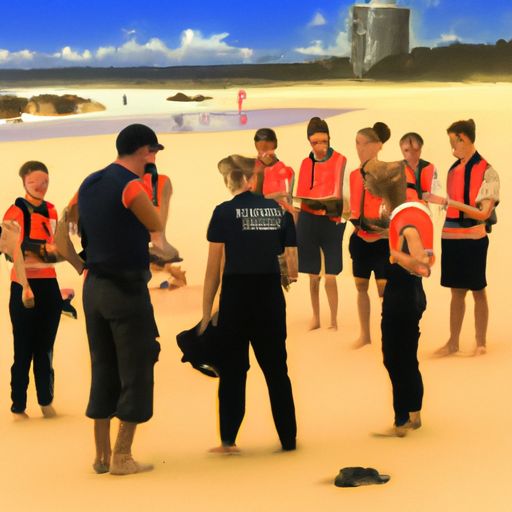The National Sea Rescue Institute (NSRI) is a nonprofit organization that has been instrumental in saving countless lives across South Africa’s coastal areas. With over 1,000 highly trained volunteers, the NSRI responds to emergencies at sea, including drowning incidents, boat accidents, and marine wildlife rescues. The organization’s mission is to prevent loss of life on the coast and inland waters, providing a vital service to the country’s coastal communities.
The Importance of Surveillance Measures in Ensuring Public Safety
The NSRI’s recent rescue of a young boy at Strand Beach is a testament to the importance of surveillance measures in ensuring public safety at beaches and other water bodies. The incident serves as a powerful reminder of the dangers of rip currents and the need for prompt action in emergencies. In addition, the NSRI’s efficient utilization of installed cameras and well-trained personnel highlights the significance of having robust emergency response teams.
Lezhae Snyders, the NSRI’s emergency operations camera operator, played a pivotal role in ensuring the boy’s safety. After spotting the boy on the camera, her quick response allowed the lifeguards to save his life. This incident showcases the commendable collaboration and resource utilization by the NSRI team members, emphasizing the significance of having well-trained personnel in emergency response teams.
The NRI’s Ongoing Efforts to Keep Beaches Safe
The NSRI knows how important it is to keep working to ensure safe beaches and seaside places. The group has cameras at sites with dangerous rip currents, like Strand Beach, Blouberg Beach, Herolds Bay, and Buffels Bay in the Western Cape. The NSRI wants to put more cameras in different places in the Western Cape and KwaZulu-Natal by the end of the year.
However, to ensure the proper functioning of these cameras, the NSRI requires more volunteers to operate them. The organization will train these volunteers to use the cameras, while the emergency operations center will always be ready to help should a volunteer need guidance. Public participation in keeping our beaches and coastal areas safe is paramount in the NSRI’s efforts, and the organization’s dedication to this cause is truly admirable.
In conclusion, the NSRI is an essential resource for public safety, providing a vital service to the country’s coastal communities. The organization’s efficient use of cameras and well-trained personnel showcases the importance of having robust emergency response teams in place to ensure public safety. In addition, the NSRI’s ongoing efforts to keep beaches and coastal areas safe are a testament to the dedication of its volunteers and their commitment to saving lives.












